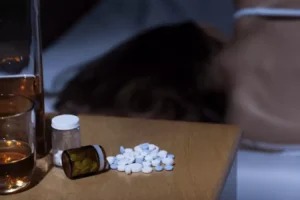
Over time, these changes to the brain create a vicious cycle of dependence that keeps the person dependent on alcohol. Together, medication and behavioral health treatments can facilitate functional brain recovery. Dr. Kate Smith is a licensed professional and has worked in the mental health and substance abuse disorder fields for over 10 years. She earned her bachelor’s degree in Social Work from Florida why is alcohol so addictive Atlantic University, graduating magna cum laude from her class. She obtained her Masters in Social Work (MSW) at Barry University in an accelerated program. The American Society of Addictions Medicine states that “genetic factors account for about half of the likelihood that an individual will develop addiction.” This makes sense when you realize that our genetics determine all of our traits.
Is Binge Drinking Considered Heavy Alcohol Use?
Alcohol interferes with the brain’s communication pathways and can affect the way the brain looks and works. Alcohol makes it harder for the brain areas controlling balance, memory, speech, and judgment to do their jobs, resulting in a higher likelihood of injuries and other negative outcomes. Long-term heavy drinking causes alterations in the neurons, such as reductions in their size.
How health care leaders can prioritize health equity for the LGBTQIA2+ community
Situated across the UK and Spain, our Recovery Centres offer you dignity, comfort, excellent accommodation, our expertise and full support as we walk beside you – helping you on your journey to recovery. We have a dedicated family telephone helpline to offer support for those who need it from loved ones and for families to support those in need through recovery. Most of us are aware of the dangers of alcohol and how addictive it can be. To answer the question, what makes alcohol so addictive, we must first answer how people become addicted in the first place. 2The autonomic nervous system is that division of the nervous system which regulates the functions of the internal organs and controls essential and involuntary bodily functions, such as respiration, blood pressure and heart rate, or digestion. People who should not drink include women who are trying to conceive or who are pregnant, people who plan to drive or operate equipment that requires attention or skill, and people using prescription or over-the-counter medicines that can cause drowsiness.
STAT Plus: Grail, aiming to market a blood test for cancer, faces host of challenges as it debuts on Nasdaq
- For example, Naltrexone is an opioid drug that blocks opioid receptors.
- It’s not a normal memo to help you set goals or keep a busy life on track.
- Alcohol dependence is thought to represent a persistent dysfunctional (i.e., allostatic) state in which the organism is ill-equipped to exert appropriate behavioral control over alcohol drinking.
- Our personalised aftercare plan will be designed in accordance with your unique set of circumstances and the challenges you will likely face upon return to your everyday life.
At the same time, alcohol stimulates the release of other neurotransmitters, such as dopamine and endorphins, which create pleasurable sensations. In short, alcohol use during adolescence can interfere with structural and functional brain development and https://ecosoberhouse.com/article/alcoholism-and-denial-helping-an-alcoholic-in-denial/ increase the risk for AUD not only during adolescence but also into adulthood. To help clinicians prevent alcohol-related harm in adolescents, NIAAA developed a clinician’s guide that provides a quick and effective screening tool (see Resources below).
- More resources for a variety of healthcare professionals can be found in the Additional Links for Patient Care.
- The social acceptance of drinking can often lead to denial — and, if left untreated, severe consequences.
- Escapism from mental health struggles, like depression or anxiety, stressful situations, and stressful environments, frequently result in some form of substance use disorder to self-medicate from discomfort.


Why Should We Be Concerned About AUD and Alcohol Addiction?
- In order for treatment to work, the person with an alcohol addiction must want to get sober.
- The Centers for Disease Control and Prevention (CDC) says social isolation or chronic pain may increase suicide risks among older people.
- Alcohol makes it harder for the brain areas controlling balance, memory, speech, and judgment to do their jobs, resulting in a higher likelihood of injuries and other negative outcomes.
- Group meetings are available in most communities at low or no cost, and at convenient times and locations—including an increasing presence online.
- Alcohol addiction may involve several different treatment methods.
- Symptoms of alcohol use disorder are based on the behaviors and physical outcomes that occur as a result of alcohol addiction.
Withdrawal Symptoms


